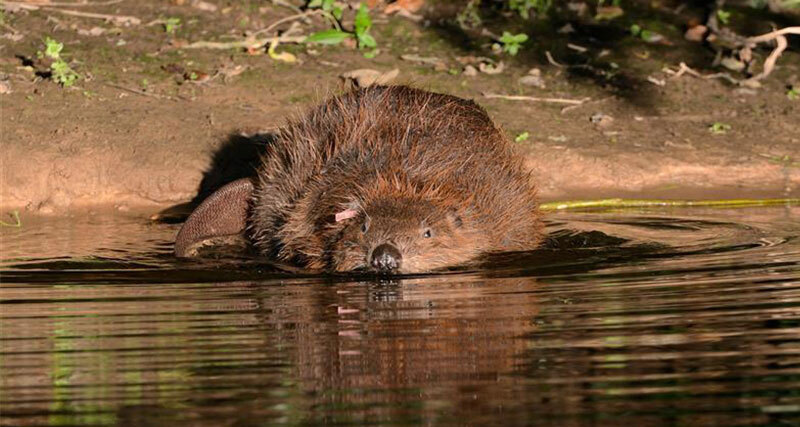Welsh Government’s policy position on beavers in Wales was set out in a Written Statement by Huw Irranca-Davies MS, Deputy First Minister and Cabinet Secretary for Climate Change and Rural Affairs, last September when it was announced that Welsh Government supports moving towards the managed reintroduction of European beavers (Castor fiber) in Wales.
Targeted engagement exercise
Welsh Government has subsequently launched a targeted engagement exercise on proposals to amend the legislative framework to provide protection to European beavers, thereby supporting their managed reintroduction and affording them additional legal protection as a European protected species, similar to that offered to otters or bats.
Welsh Government say they will retain the requirement for a licence to release beavers into the wild, but it will become a legal offence to deliberately capture, kill, disturb or injure beavers or to damage or destroy breeding sites or resting places.
In some cases, Welsh Government acknowledge that beaver activity may cause negative impacts which may need to be managed. Where the impact cannot be mitigated through permitted means, a licence, issued by NRW, will be required to carry out certain otherwise prohibited activities.
NFU Cymru discussions
Welsh Government’s proposals were considered at last month’s meeting of the Rural Affairs Board, when members received valuable insight from NFU Scotland representatives where beavers are currently present in two main areas. In summary, beaver impacts are known to include;
- Poor land drainage
- Damage to arable land
- Loss of grazing
- Riverbank collapses
- Fields caving in over beaver lodges, which can damage machinery and livestock
- Flooding as a consequence of beaver activity.
Impacts can be highly localised placing a considerable cost burden on an individual farm business.
The board was not supportive of the reintroduction of beavers in Wales or a change to its legal status and has opposed Welsh Government proposals. On the basis of the evidence, Welsh Government’s support for a move towards the managed reintroduction of beavers is highly premature and a risky course of action.
What is the union calling for?
NFU Cymru is calling for more research to be undertaken and for a strengthened approach to addressing illegal releases of beavers. Where illegal populations exist, farmers must be provided with access to funding; compensation for damages; and, where needed management / control measures to help them mitigate against and manage any potential impacts in the short, medium and longer term. NFU Cymru also wants to see strengthened requirements for beaver reintroduction projects into enclosures.

